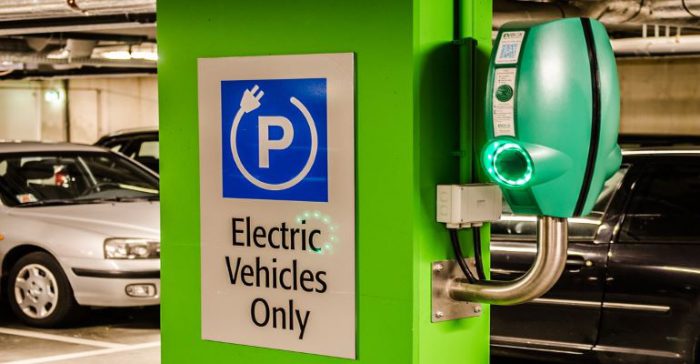Taylor Patterson, ERS
Pros and Cons of Electric Vehicles
As with any technology, electric vehicles (EVs) have their own list of advantages and drawbacks.
| Pros: | Cons: |
| – Elimination of tailpipe emissions – Minimal operational costs – Lower maintenance costs – Convenient at-home charging – Unique driving experience | – Range anxiety – Recharge time – Accessibility of charging station – Higher upfront cost |
The most advantageous quality of EVs, especially for all of you Zondits readers, is their elimination of tailpipe emissions. Reducing the contribution to air pollution and humanity’s overall carbon footprint can significantly decrease the damage done to the earth every day. In addition, operational costs are significantly lower, without the need for gasoline or oil changes. Public charging stations can be free or have a low fee, and EV owners have the option to install a private charging station at home for convenient overnight charging. Hybrid electric vehicles (HEVs) and plug-in hybrid electric vehicles (PHEVs) still have some operational costs because they do require gasoline, but costs are considerably lower than conventional vehicles. EV owners also save on maintenance costs; with fewer parts generating mechanical activity and, in turn, requiring less mechanical attention, EV owners do not pay for to upkeep parts that are relied on in conventional vehicles. Another favorable quality of EVs is the unique driving experience. A common misconception is that EVs are slow, boring cars, but many drivers report that they are incredibly fun to drive! Their electric motors, which can be precisely controlled, provide a smooth and quiet ride, while the near-instant torque make them almost “zippy” with the ability to rapidly accelerate.
Despite these advantages, which hold a lot of weight in the grand scheme of appealing attributes in choosing a vehicle, there are a few drawbacks. Range anxiety over the battery life of an EV can increase stress for drivers, especially given that the availability of EV chargers are few and far between compared to gas stations; and although all-electric models are improving in their range capabilities, not all models can match gas vehicles yet. This is often the reason why consumers might choose a hybrid over an all electric vehicle (AEV). Recharging an EV takes a lot longer than filling up on gas too. The fastest-charging EVs can reach an 80% charge within 10–30 minutes, but more common EVs can take anywhere from 3–12 hours to gain a full charge, depending on the charger type. Installing more fast-charging stations could alleviate this problem. Slower charging EVs can translate to a higher trip-planning burden for EV drivers, who want to make sure they have enough charge to get around without needing to recharge for a couple of hours mid-trip. And as mentioned above, EV charging stations are not nearly as common as gas stations – a sign of developers’ hesitance to install charging infrastructure before there are enough drivers to achieve high utilization, often summarized as the “chicken or the egg” problem. Although the number of charging stations is on the rise as private car owners and fleets continue to adopt EVs, they are still much more difficult to locate while out and about compared to the convenience of gas stations. This is in part due to the lack of availability of space to install EV charging stations. However, the dramatic increase of EVs on the road forces the issue; charging infrastructure is predicted to expand immensely in the near future.
Projection of EVs
It is true that EVs are trending, but the question now is how fast. A 2017 Edison Electric Institute analysis projects that by the year 2025, 7% of all vehicle sales in the US will be EVs, translating to 7 million EV cars on the road. For perspective, the number of EVs on the road at the end of 2016 was only 567,000, proving just how drastic the growth of EVs is expected to be. On the global stage, the projected percentage of EV sales as of 2018 rose to 28% for 2025. These statistics are dominated by car sales from Tesla, a company that manufactures self-driving EVs. Other EV sales are more level in their progression.
Common EVs
It is likely that you have seen many EVs out on the road without even realizing it! Sure, pointing out a Prius or a Tesla isn’t difficult, and most people know them as hybrid or electric, but there are other EVs out there. Here are a few common EVs you might see zipping around:

